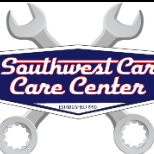-
Posts
7 -
Joined
-
Last visited
Content Type
Forums
AutoShopOwner Articles
Downloads
Blogs
Gallery
Profiles
Events
Store
Links Directory
Shop Labor Rates
Community Map
Posts posted by SW Car Care
-
-
In regard to employee retention.... it depends upon the employee's attitude, but I'd say it's a net win for the shop.
We've been doing the tool allowance for the last 6 years. New guys, especially young guys can be a little funny. We try to hire people in their early 20's (Gen X-ers) which means it's inherently impossible for them to see the big picture. Things like KPI's, profitability and efficiency are not even on their radar much less what it truly takes to build on a career and self-reliance. We try to teach and mentor them on every aspect of not only our business but their career as well. Taking a young man and opening his eyes to the monumental scope of our business is no small chore. Nor is opening his eyes to forward-thinking the scope of his career and his life in general.
If a guy can be observant, see the big picture and make it past the first year, then they start getting a little hungry for that allowance and want to see the 2nd year through. By the time the 2nd year is up they should be taking more notice of how well the rest of the shop is kept equipped, how bonuses are paid out when we surpass our sales goals and how they can improve their situation at the shop through their own initiative.
We pay hourly at our shop and work as a team. On days where there is more work than a man can say grace over, the best suspension man does suspension work, the best AC man does AC work, the best diagnostics man diagnoses. On days where there is not enough work to go around, the best diagnostics man or the best AC man or the best suspension man will teach what he is doing to anyone with an interest in bettering himself (and we notice who is trying to better themself and who isn't). Also, nothing is below any man's pay-grade. If I need one of my L1's to do an oil change because my B-techs are hoofing brakes and ball joints, then the L1 does the oil change.... and an L1 level PMA.
Where the teamwork pays off is at BONUS time. Through the years we have deduced what annual sales figure we need to achieve to cover all expenses and make a nominal profit. Once we've achieved that goal, each team member receives a 3%-5% bonus for every dollar in sales beyond that number.
We also pay for ASE Tests and give pay raises for successful passage of the tests. The mechanic needs to take the initiative to study and schedule their tests, but they can ensure a yearly raise if they take an interest in becoming a professional, well-rounded mechanic.
On the other hand, if a new hire turns out to be your average booger-picking, mouth-breather.... they're not observant, cannot see the big picture or is generally unmotivated he's not going to last long. Unfortunately, there is no avoiding these people. They can ace the interview, talk a big game about how they want to learn, be enamored with the goings-on for the first few months and then totally implode. We've had guys quit after 1 year and we've had guys quit after 1 day.... lol. This is after we've invested a few thousand dollars into bringing them on board and giving them every tool they need to succeed (not just physical tools in this case but training, mentoring, etc). Even in those cases, we're glad to see them go, we pick up our tools to help the rest of the crew with the workload and go back on the lookout for the next potential winner.
So, facts of life.... turnover is going to happen, 1 out of 3 hires is going to be a long-term hand, not everyone is going to get your program and appreciate it. We believe our hiring process, our willingness to help our guys be better mechanics, our work hours and our compensation plan are superior to just about anything the competition has to offer and by that standard we don't get our feelings hurt when a guy moves on because we just move on too.
-
 2
2
-
-
We also provide all major equipment & specialty tools but at our shop we go a step further.
My brother and I own our own shop and mostly manage operations and diagnose these days, but back in the day, we were wrenching every day. We still buy tools as though we may lose our best mechanic tomorrow. Our mechanics are free to use anything in our collection as they build their own. We give our new hires a $40/week tool allowance to facilitate their acquisition of tools and we expect them to match that. The tool allowance lasts for 2 years. We keep a ledger of the purchases and if the mechanic is still with us after 2 years, then ownership of what we've paid for on their behalf transfers to them. If they've done due diligence and matched our commitment, then they could have upwards of $8000 in tools of their own (not bad for a young guy who is only 2 years in). If they quit or get fired before the 2-year mark, then the tools belong to us.
We also purchase tools with the mindset of a shop owner, not a mechanic. As we have studied KPI's like shop efficiency and the value of 1 minute, if a new tool pays for itself in the time it will save a man in potential labor hours, then the tool gets bought.... period. As an example, I remember a day my brother spent the better part of an hour looking for bolts that would help him pull a steering wheel (our old steering wheel puller didn't have the right sized bolts). In our shop, we know that our potential gross profit is $5.32 per minute per man (not that we gross $5.32 every minute of the day.... but that is the potential gross if work is unlimited). If a minute is potentially worth $5.32, then one hour is worth $5.32/min x 60min = $319.20. In our mindset, if a tool costs $319.19 and it will save a man hour and it will be used many times over….it gets bought. Needless to say, a new steering wheel puller was purchased that afternoon (Amazon: $98.56).
Now, providing tools and letting guys borrow whatever they need whenever they need it demands a few things.
- Honesty: You can't have a den of thieves in your shop, or it will never work. We tell our new hires there is a ZERO Tolerance theft policy and repercussions are swift. We've never had an issue with tools going missing and I think it's because we also tell our new hires to respect a man's tools as you will want yours respected.
- Cleanliness: Put back what you have borrowed in a timely manner so the next guy who needs it can find it and cleaner than when you borrowed it.
- Organization: Put what you used back in its proper place.
Benefits of shop ownership of a large tool collection:
- Mechanics appreciate not having to spend a significant portion of their paycheck on tools that won't be worth 25 cents on the dollar 20 years from now.
- Employee retention: If a mechanic gets a job offer for another couple dollars per hour, but in order to take that job they would have to purchase thousands of dollars in tools, they aren't very apt to leave.
- Worst-case scenarios: We've been in the business a long, long time. Long enough to once have our best mechanic pass away unexpectedly and long enough to have another best mechanic get himself fired for a reason that we could not overlook. By keeping our own mechanic skills sharp and our own toolbox current, while the worst-case scenario stings, we can still turn out cars and not be in a mad rush to hire.
- The mechanics learn mutual respect. Not just for us but for each other.
- Organization: Again, organization. Putting away tools leads to other good habits like mopping the floor, taking out the trash, etc. We get a lot of compliments from customers on how clean our shop is when compared with other shops in the area. It's a point of pride and we love it when the mechanics are in the office to hear it.
-
 1
1
-
I just read your article and believe this passage should be the center of the piece.....
"In an S-Corp, income “passes through” to the shareholders, meaning it is subject to tax on the shareholder’s individual income tax return, not the business’s."
In several instances, a reader could be led to believe that distributions are not taxable. Such as when you say, "Overall, S-Corp distributions and draws are not taxable". Yes, they are not taxable at the corporate level, but they do need to be declared as income on that individual shareholder's tax return. No, distributions are not subject to PAYROLL TAX but income tax liability by the shareholder will need to be accounted for.
-
Absolutely not. I've had guys sheepishly ask in the past, but they are given the standard response, "If I'm paying my taxes, YOU are going to pay yours!"
-
 5
5
-
-
This topic is on point, Joe.
After 32 years in business I can honestly say my crew has logged more tardy days in the last year than the previous 10. It's aggravating to say the least.
I finally called a pow-wow last week and told the guys, "Look, when you're late, I or my brother (my business partner) are out in the shop picking up the slack because we've told customers that they can get their vehicles worked on and back at a certain time. When you walk in late, you blow our schedule and our potential to maximize the bays and the days out of the water.....and no, we're not going to slow down for you or turn work away. Therefore, any day that you walk in late and you hear an owner say, "You're late" instead of, "Good morning" just know without exception that we've logged the tardy in the payroll ledger. That tardy will cost you $100 off your bonus (which we pay bi-anually). Do that 10 times and see how you like the result. Nobody is going to lose their job over being late because we like you all and we like your quality of work....but if we're going to turn the wrench, we're going to keep that money".
Keep in mind, we are numbers guys and even our most junior mechanic knows our "value of a minute".
-
 3
3
-




Should the Shop Purchase or Subsidize Technician's Tools?
in Technician Corner - Discussions
Posted
Happy to share. Even after 30+ years we're still trying to figure it all out too! 🤣